9 Safe, Natural Blood Thinners To Reduce Blood Clots (Thrombosis) And Risk of Stroke
Last updated on
Have you ever gone for a blood test, and when the needle is inserted into your veins to draw out blood, the blood doesn’t flow out smoothly? If that happened, you know you have thick, coagulated blood.
Before you start taking a blood thinning tablet, you need to understand WHY you have thick blood and what you can do about it. I believe in always treating the root cause of a problem, instead of taking a pill to try to dissolve or suppress a symptom.
What Is Thick Blood?
Thick blood, or hypercoagulability, is a condition where your blood is thicker and stickier than what it should be. With hypercoagulability, you will be more susceptible to excessive blood clots (thrombosis) that can lead to a stroke or tissue and organ damage.
Blood clots can form in both arteries and veins. When these clots travel to your heart or lungs, they can get stuck in your blood vessels and cause problems.
Deep vein thrombosis (DVT) occurs when a blood clot forms in a deep vein, usually in your legs, or sometimes in your arms. When a blood clot occurs in your brain, it can cause stroke or an aneurysm. When it forms in your heart, it causes a heart attack.
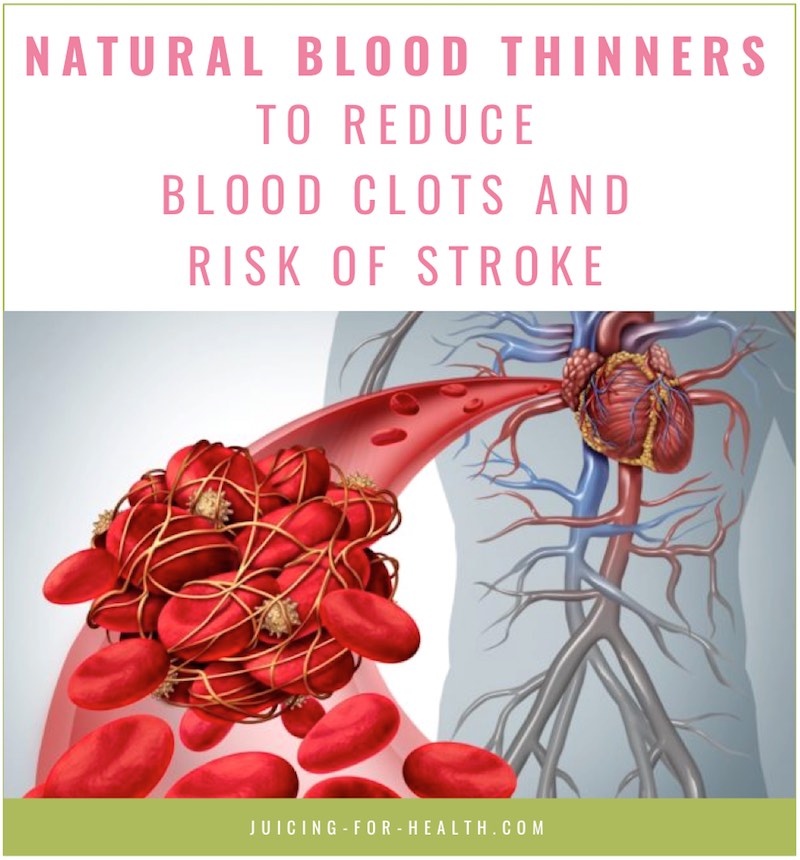
Health Consequences of Thick Blood
Having thick blood also means that you have a poor blood flow. Poor blood circulation may result in:
- Oxygen hunger of the tissues and organs
- Decreased energy
- Impaired immunity
- Hormonal disruption
- Slow metabolism
Symptoms of Thick Blood and Poor Blood Flow
With poor functioning of the above processes in the body, you may experience various symptoms:
- High blood pressure
- Fatigue and constant sleepiness
- Shortness of breath
- Brain fog
- Blurred vision
- Lightheadedness
- Headaches
- Cold hands, feet, ears and nose
- Numbing or tingling sensation in the hands and feet
- Slow healing of wounds and bruises
- Impaired immune system
- Digestive disorders
- Dry and itchy skin
- Hair loss
Causes of Thick Blood
There are a number of factors that can cause thick blood and poor blood circulation:
- Certain medical conditions
- Being on long-term medications
- Chronic dehydration
- Poor diet
- Stressful lifestyle
The issues we want to address here that are within our control, is our lifestyle and diet.
Poor Lifestyle And Diet Habits
Chronic Dehydration
Chronic dehydration is a major contributor to thick blood. Drinking insufficient water for an extended period is one cause. Drinking the wrong types of beverages is another cause.
Drinks such as alcohol, sodas, sports drinks, sweetened beverages, and boxed drinks will only worsen your dehydration issue.
A dehydrated blood is simply not-so-fluid, thus is unable to even perform its basic function that is to carry oxygenated blood and nutrients to be distributed throughout the body. So, you can imagine the damage that it can cause to your tissues and organs, when left untreated.
Poor Diet — Foods That Thicken Blood
A poor diet that is low in fiber, high in the wrong types of fats, processed foods and sugar is one of the major problems most Americans have, diet-wise.
This kind of diet (a.k.a. SAD—Standard American Diet) first of all, causes chronic constipation and eventually leads to a sluggish or fatty liver, resulting in thick blood and many other health issues.
Processed foods have no nutrition that your body needs. Eating a diet that is high in processed foods means that your body has to expend its own nutrients to digest these foods, gradually depleting your own supply of nutrients that is not being replenished sufficiently.
Other than not having any nutrition and depleting your body’s nutrients, processed foods also contain artificial food additives that act as toxins in your body that contribute to blood thickening. Toxins in the blood lowers your blood pH to become acidic.
To put it simply:
ACIDIC BLOOD = THICK BLOOD = TOXIC BLOOD ⇒ DISEASES
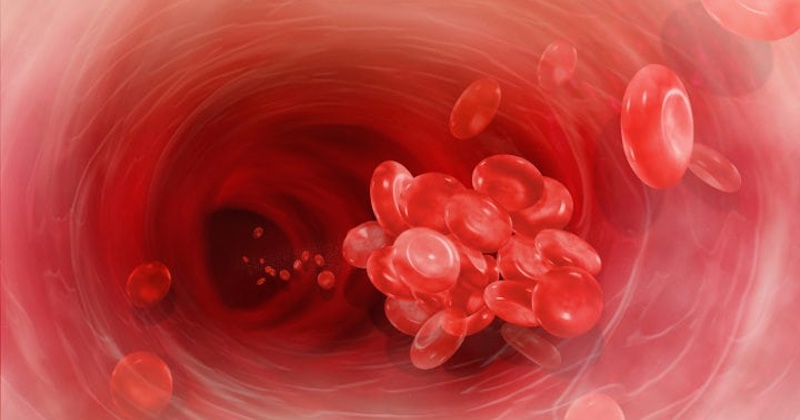
Stressful Lifestyle
Chronic stress is a threat to your body’s homeostasis and detrimental to the functions of your gut.
When you’re stressed, your adrenals produce adrenaline that increases your blood pressure and energy supplies. The primary stress hormone cortisol, curbs non-essential functions in a flight-or-flight situation.
In extended periods of stress, your immune system responses will be altered, digestive system suppressed, reproductive and growth processes will be affected.
When you’re constantly stressed, the long-term activation of the stress-response system is activated and eventually cause disruption in all your body’s processes, including your blood quality, putting you at risk of many health problems.
Blood Thinning Medications
As discussed above, thick blood can cause blood clotting (thrombosis) and other health conditions, increasing the likelihood of various medical concerns, including strokes, heart attacks, and even death.
While blood thinning medications such as Warfarin (or Coumadin, the brand name) and aspirin may help prevent blood clots and stroke, it shouldn’t be taken for long-term.
Dangerous Side Effects of Blood Thinning Medications
These medications have been known to cause a host of side effects. Warfarin and other blood thinners could cause any of these bleeding issues:
- Profuse bleeding from a minor wound
- Bleeding in the stomach or intestines
- Stomach or peptic ulcers
- Bleeding in the eye
- Easy bruising, including in the brain
- Blood in the urine
- Allergic reations
- Any abnormal bleeding
Complications of Atrial Fibrillation (AFib) and Blood Clots
The most common cause of stroke is a blood clot. AFib puts patients at an increased risk for stroke because blood may not be properly pumped out of the heart, which may cause it to pool and form a clot. This clot can then travel to the brain and block the flow of blood to part of the brain which can result in a stroke.
When it comes to treating AFib there are two primary treatment goals:
- Reducing the risk of blood clots and stroke
- Managing abnormal heart rate or rhythm
Natural Blood Thinners for Atrial Fibrillation (Afib)
With atrial fibrillation, blood thinners which include Aspirin, Warfarin and Plavix are often prescribed. But, if you are a low-stroke risk AFib patient, the medications may actually increase both bleeding and stroke risk!
Instead of taking these medications that have dangerous side effects, start to include alkaline-forming foods into your diet. The following suggestions for natural blood thinners are excellent foods to reduce the risks of bleeding and stroke, in patients of atrial fibrillation.
Natural Blood Thinners To Reduce Blood Clots And Risk Of Stroke
As with most medical conditions, the healthy solution is to make some changes to your diet.
By including foods that are natural blood thinners, you can enjoy the same benefits as a pharmaceutical blood thinner without the risks of adverse effects.
Natural healing takes time, as opposed to taking pills that provide an instant effect. Natural foods bring healing, whereas pills only suppress the symptoms.
Natural Blood Thinning Foods And Drinks
What are the best natural blood thinners that won’t cause side effects? Basically, almost all plant-based whole foods are alkaline-forming. Alkaline-forming foods help reverse an acidic blood.
Remember this:
ACIDIC BLOOD = THICK BLOOD = TOXIC BLOOD ⇒ DISEASES
The opposite is true:
ALKALINE BLOOD = NORMAL BLOOD = LESS TOXIC ⇒ REVERSE DISEASES
Human blood pH is slightly alkaline at about 7.35 to 7.45. With high consumption of acid-forming foods, blood pH becomes acidic, thus is susceptible to diseases and hosts harmful microbes and pathogens.
Studies show that an acidic environment helps cancer cells to grow. In order to reverse diseases, we need to eat more of alkaline-forming foods (80%) and less of acid-forming foods (20%).
1. Water And Hydration
This may not sound like a blood thinner but it absolutely works, and is free! Dehydration can lead to thickening of your blood, which increases your risk of developing a blood clot, along with other medical concerns related to dehydration.
Make sure that you drink plenty of water throughout the day, every day, to keep your cardiovascular system healthy. The type of water you drink also plays a part.
Drinking alkaline water as some “experts” suggest may be beneficial for a period, but alkaline water is not the best long-term solution.
The best hydration fluids are freshly-extracted juices as they are also alkalizing. See item 7 below.
2. Garlic
Eating raw garlic can significantly lower blood cholesterol and triglyceride levels and thereby, reducing the risk of plaque formation and heart disease, and preventing the formation of blood clots in the body.
Apart from preventing blood clots, garlic has significant antioxidant activities that protect the blood vessels and heart from the harmful effects of free radicals.
Several human studies have found that garlic may be beneficial in the prevention of thrombosis. Garlic is shown to inhibit platelet adhesion or aggregation.
Read about the full benefits of garlic and how you can eat it raw.
3. Turmeric
If you have spent any time researching natural remedies for various ailments, you have most likely come across turmeric as a “miracle spice”.
Turmeric is commonly used in curry dishes and Indian cuisine, along with providing a wide assortment of medical benefits. Curcumin, the polyphenol derived from the plant has been used extensively in complementary and alternative medicine for its various therapeutic properties.
It helps prevent blood clotting, acting as an antiplatelet. You can add freshly ground turmeric powder to water, tea, curry, salads, and other meals. Taking a curcumin supplement daily might be a better alternative to a pharmaceutical drug. Find out how to grow turmeric at home.
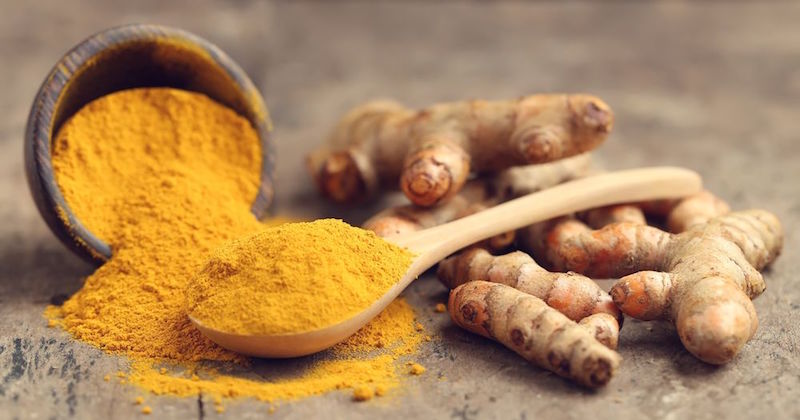
4. Ginger
Ginger is almost as powerful as turmeric in terms of its anti-coagulating properties.
Case studies reported ginger’s most significant effect on platelet aggregation, making it useful for blood thinning purpose.
Ginger contains a natural acid called salicylate that is an anti-inflammatory and anti-coagulating compound. The pharmaceutical lab imitates Nature by creating Aspirin (acetylsalicylic acid) — a synthetic derivative of salicylate and a blood thinner. However, a dangerous side effect of Aspirin as a blood thinner is stomach ulcer.
Add ginger in any of your juices, teas, broths or cooking to enjoy its immense health benefits.
5. Cayenne Pepper
Another spice that is great to be included as a natural blood thinner is cayenne pepper. This actually may be one of the fastest-acting blood thinners on this list.
Cayenne pepper helps to facilitate better blood circulation, improving blood flow to the brain, strengthening heart beat and preventing adhesion of platelets that can cause blood clots. Blood clots are deadly in individuals with high blood pressure as it can lead to stroke or aneurysm.
Consuming large amounts of cayenne pepper can help break apart blood clots and provide some blood thinning benefits. But, a word of caution, this is spicy hot and not for the faint hearted!
Add a small amount of cayenne pepper to your tea, and your meals throughout the day to help promote better heart health.
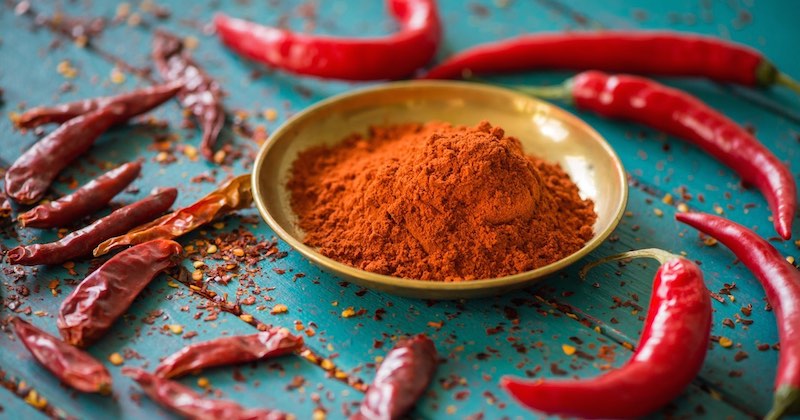
6. Pineapple
Pineapple contains an enzyme called bromelain. This enzyme helps to protect against the formation of uric acid crystals. These crystals are known to cause gout and kidney stones.
Bromelain is also a natural blood thinner, as it can help reduce the excessive adhesiveness of blood platelets. These benefits are increased if you combine pineapple with turmeric and ginger. Make a pineapple smoothie like this.
7. High Water Content Fruits and Vegetables
High water content fruits and vegetables are some of the best foods you can add to your daily diet to naturally thin your blood. (High water content = alkalizing).
These fruits and vegetables work threefold in reducing blood clots fast — they are highly cleansing, alkalizing and mineralizing in hydrating your body. This means that they are able to cleanse your blood of toxins, they are alkaline-forming and provide the minerals that your body needs to function better.
Not only are these foods alkalizing, they are also rich in enzymes and phytonutrients that are protective of your health in many ways, thus may reverse many of your health symptoms at the same time.
Some examples of high water content fruits and vegetables (in no particular order):
Fruits: Apple, cantaloupe, citrus fruits (especially lemon and grapefruit), coconut water, cranberries, honeymelon, rose apple, strawberries, tomato, watermelon.
Vegetables: Sweet peppers, bokchoy, celery, cucumber, iceberg lettuce, radish, watercress, zucchini.
Natural Blood Thinning Supplements
8. Vitamin B3
There are eight different B vitamins, including vitamin B3—also referred to as niacin. The B vitamins are responsible for converting carbohydrates into glucose, which your body uses for energy.
The B vitamins help your body use protein, and fats are needed to maintain healthy skin, hair, liver, and nervous system function.
Niacin has been used as a natural blood thinning supplement to lower bad cholesterol for decades, and could help reduce the risk of heart disease or stroke. If you decide to take niacin to prevent blood clotting, start with a very low amount of about 50mg. Read up about vitamin B3 and understand the flushing effect before you start on it.
9. Vitamin E
Vitamin E has a variety of medical benefits, from helping to heal wounds to promoting better skin.
While these are great reasons to consume more vitamin E, it can also be used to prevent blood clots and the hardening of arteries.
Vitamin E dissolves in fat and is found in eggs, meat, cereal and various fresh fruits and vegetables. Vitamin E capsules are also a good option to ensure you get your daily supply.
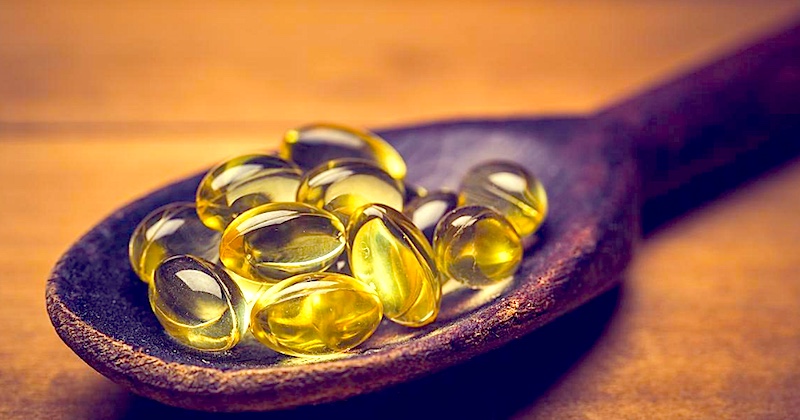
If you have been searching for an alternative to prescription blood thinners such as warfarin, then consider including the above foods in your daily diet.
Grounding: Walking Barefoot To Reduce Blood Clots
Our constant contact with electronic devices/gadgets like computers, tablets, smart phones, etc. expose our body to electromagnetic fields that can be detrimental to our health.
When you walk barefoot on earth, your sole’s contact with earth soaks up millions of electrons into your body that detoxifies. It has an alkalizing effect on your body that “thins blood” and helps reduce blood viscosity that is a common cause of insomnia, fatigue, blood clots, stroke, heart attack, diabetes and other diseases.
Learn more on how to do effective grounding as a natural blood thinner.
Caution on Using Natural Blood Thinners:
If you’re on any medication, make sure that you check with your health practitioner before using any of the above suggestions to help thin your blood.
Some of the links I post on this site are affiliate links. If you go through them to make a purchase, I will earn a small commission (at no additional cost to you). However, note that I’m recommending these products because of their quality and that I have good experience using them, not because of the commission to be made.

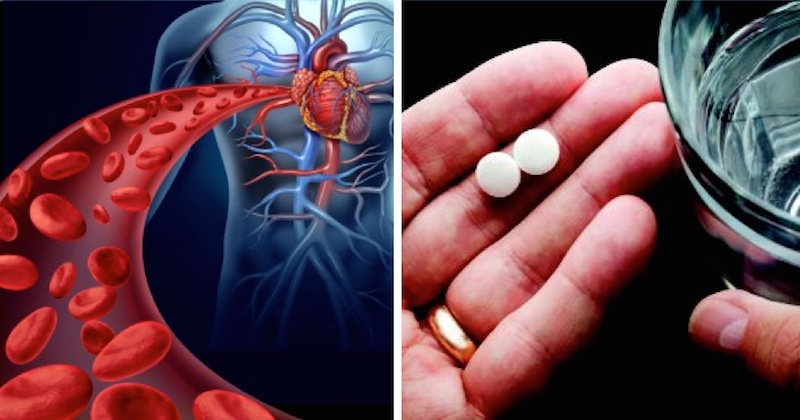
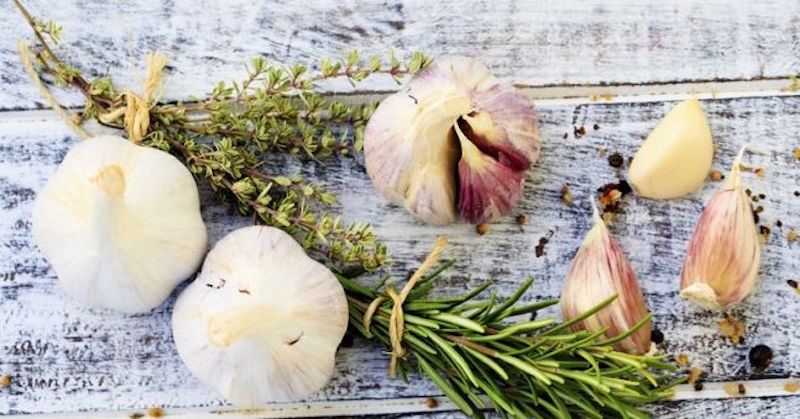
































 JOIN OVER
JOIN OVER
Comments